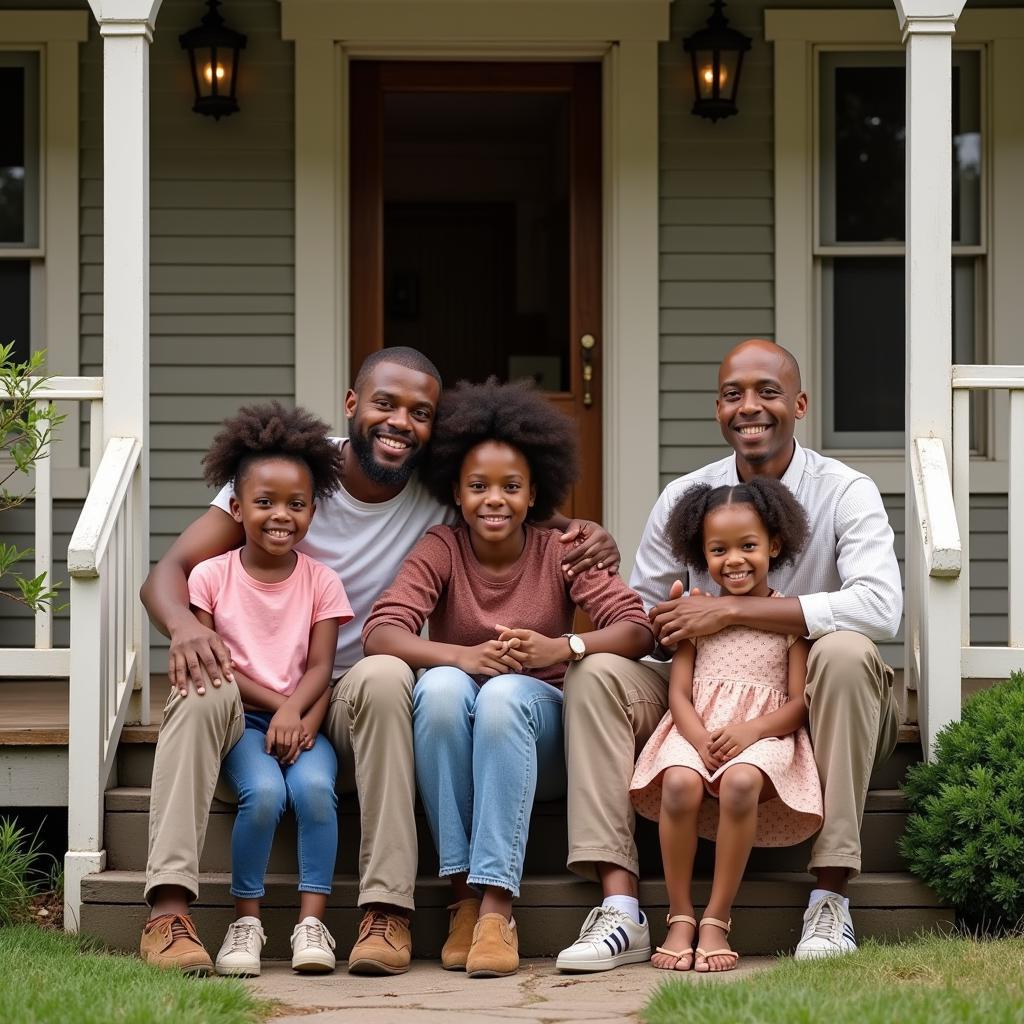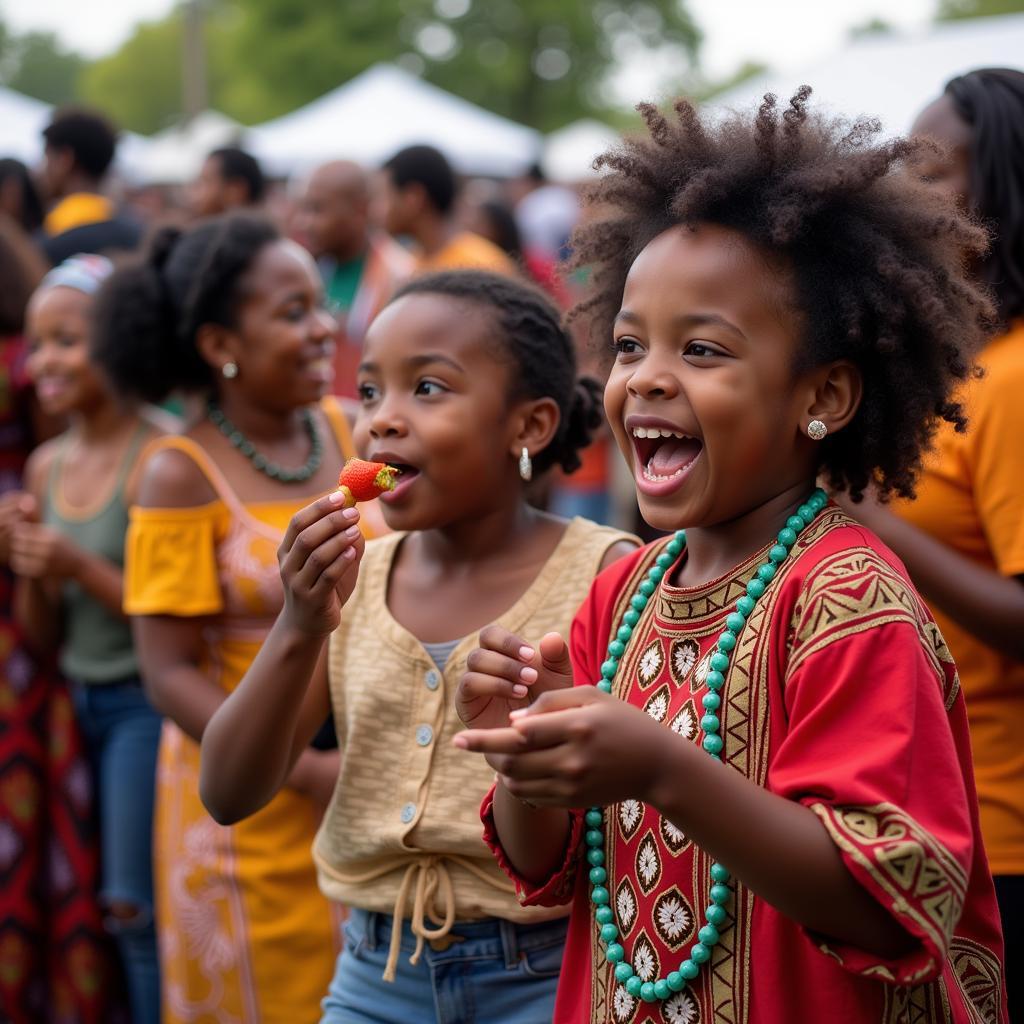African American Demographics paint a multifaceted picture of a community deeply woven into the fabric of the United States. Understanding these demographics goes beyond mere numbers, offering insights into historical trends, cultural influences, and socio-economic factors that shape the African American experience.
Unpacking the Numbers: Population Distribution and Growth
The U.S. Census Bureau estimates over 46 million Americans identify as Black or African American, representing approximately 13% of the total population. However, the distribution is far from uniform. African American demographics by state highlight a concentration in the Southern states, a legacy of historical migration patterns and economic opportunities. States like Mississippi, Louisiana, and Georgia boast significant African American populations, shaping their cultural landscapes and social dynamics.
Urban Hubs and Rural Landscapes: Diverse Living Experiences
African American population by city reveals a trend toward urbanization. Major metropolitan areas like New York City, Atlanta, and Chicago have become centers of African American life, offering access to education, employment, and cultural institutions. Yet, rural communities, particularly in the South, continue to hold deep historical and cultural significance for many African Americans, maintaining strong familial and social ties.
 African American Family in Rural South
African American Family in Rural South
Shaping the Nation: Socioeconomic Indicators and Trends
Analyzing African American population concentration in the USA alongside socioeconomic indicators provides a nuanced understanding of the challenges and triumphs faced by this community. While progress has been made in areas like education and income, disparities persist. Factors like systemic racism, access to healthcare, and generational wealth gaps contribute to these inequalities, impacting everything from health outcomes to economic mobility.
A Powerful Voice: Political Participation and Civic Engagement
African Americans have played a pivotal role in shaping the political landscape of the United States. The Civil Rights Movement stands as a testament to the community’s unwavering pursuit of equality and justice. Examining African American voter turnout in 2008 reveals a surge in political participation, highlighting the community’s commitment to exercising their civic duty and advocating for their interests.
“Understanding African American demographics is not just about quantifying a population,” observes Dr. Amina Kenyatta, a sociologist specializing in racial and ethnic demographics. “It’s about grasping the complexities of history, culture, and lived experiences that shape the present and future of this vibrant community.”
Beyond the Numbers: Celebrating Richness and Resilience
Examining African American population by county offers a granular perspective on the diversity within this community. From bustling urban centers to close-knit rural towns, African Americans have enriched the tapestry of American life through their contributions to art, music, literature, and countless other fields. Their resilience in the face of adversity stands as a testament to their strength and enduring spirit.
 African American Cultural Festival
African American Cultural Festival
Conclusion: Embracing Nuance and Celebrating Diversity
African American demographics tell a story of resilience, progress, and the ongoing pursuit of equality. By delving deeper than the surface numbers, we gain a richer understanding of the complexities and triumphs of this dynamic community. It’s a story that continues to unfold, shaping the future of the United States in profound and meaningful ways.
FAQs About African American Demographics
1. What is the current population of African Americans in the United States?
The African American population in the U.S. is estimated to be over 46 million, representing about 13% of the total population.
2. Which state has the highest percentage of African Americans?
Mississippi currently holds the highest percentage of African Americans in its population.
3. What are some key factors influencing African American demographics?
Historical migration patterns, socioeconomic factors, access to education and healthcare, and systemic racism all contribute to shaping African American demographics.
4. How does African American voter turnout impact U.S. elections?
African American voters play a crucial role in U.S. elections, and their participation has been instrumental in shaping political outcomes.
5. Where can I find reliable data on African American demographics?
The U.S. Census Bureau is a trusted source for comprehensive demographic data, including information on race, ethnicity, and population distribution.
For support or inquiries, please contact us at +255768904061, email [email protected], or visit us at Mbarali DC Mawindi, Kangaga, Tanzania. Our dedicated customer support team is available 24/7 to assist you.
Discover more insightful articles about African cultures and lifestyles on our website.
Leave a Reply